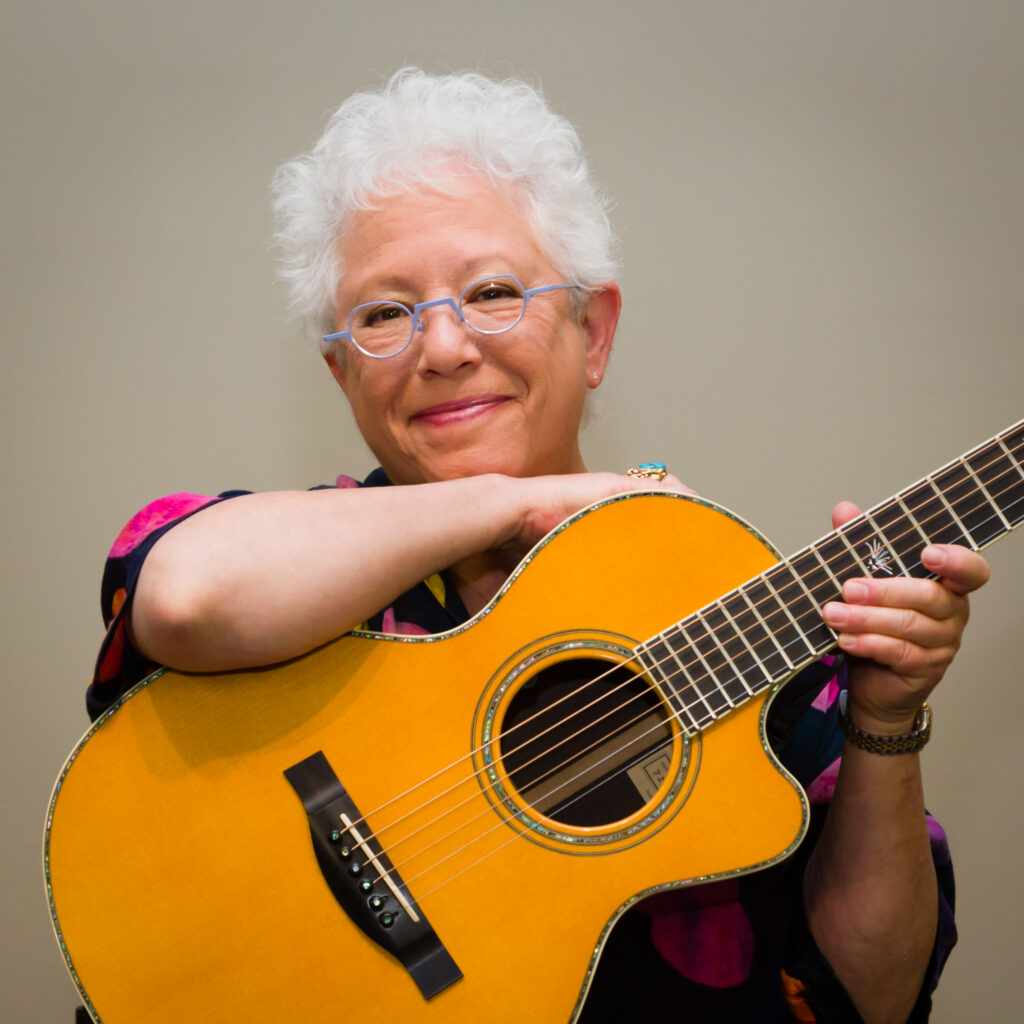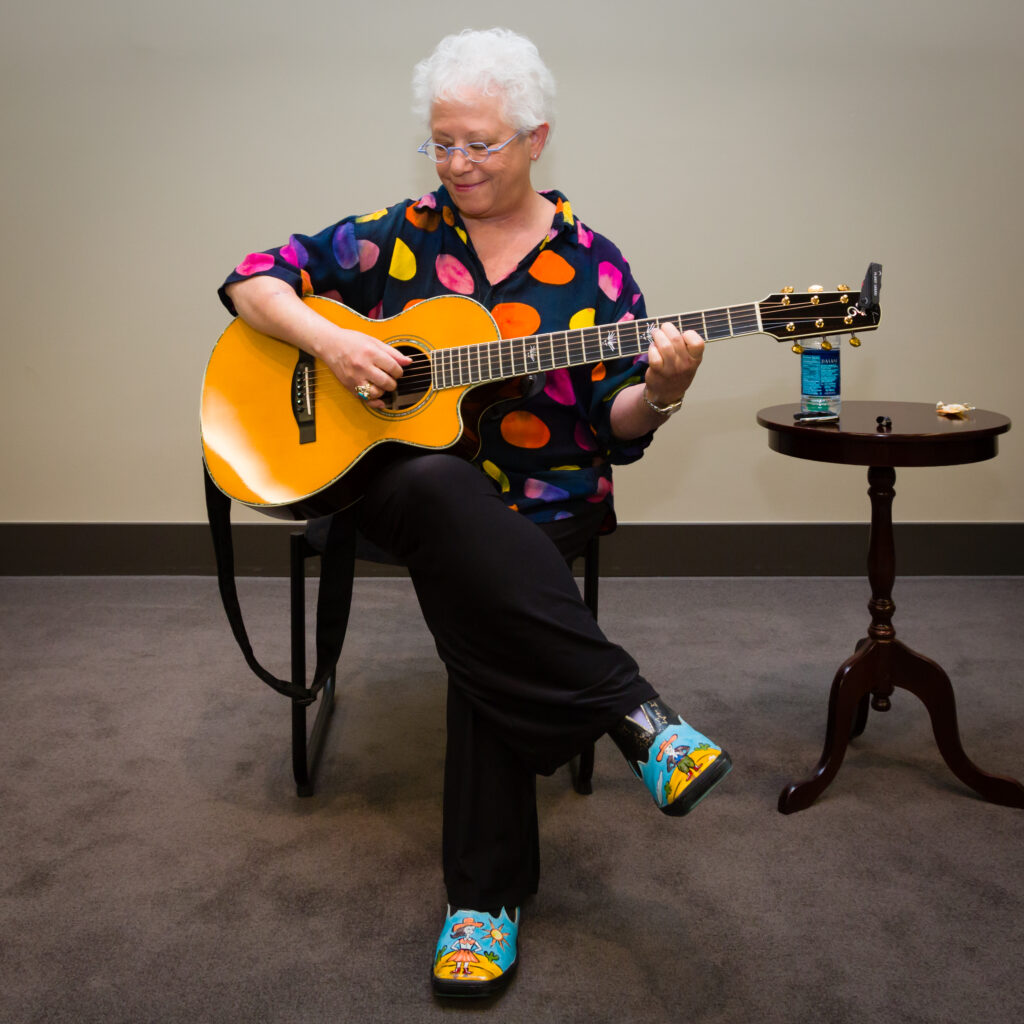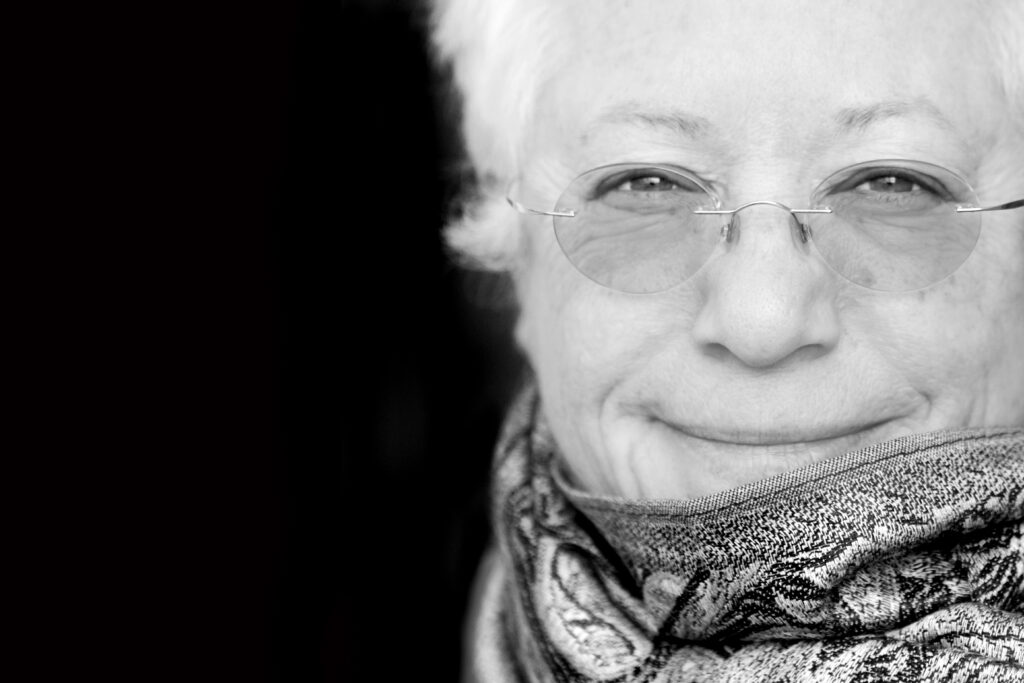Better times: Ringing in 2022 with Janis Ian
A celebration of the legacy and lifetime of folk music hero Janis Ian.
Janis Ian has been a voice for several generations of women over more than a half century–first as a teen-aged rebel and later as an out lesbian with a monthly queer magazine column. With her latest album, Ian is making a final statement with her music and beginning a new chapter in her writing. Ian sat down to talk with Queer Forty, sharing her music, her writing and her life.
Janis Ian wanted to be a Beatle when she was 14—then at 15 she became a break out folk-rock star in 1966 with her hit “Society’s Child.” At 24 she had a top 10 single, “At Seventeen,” from her album Between the Lines, which was number one on the Billboard album chart in 1975. Now the multi-Grammy winner begins 2022 with her first album in 15 years, The Light at the End of the Line. The album is pure Ian—melodic, fierce, painful, haunting. It will, of course, make you cry.

Unlike many older singers, Ian’s voice shows no hint of aging–it is clear and crisp as ever, belying her 70 years. These songs are folk, rock, bluegrass, honky tonk, jazz, blues—they run the entire gamut of the Ian songbook. There’s the sultry jazz of “Summer in New York,” the quiet folk ballads that are “Nina” and “Stranger,” and the bluegrass extravaganza she wrote for the pandemic that is “Better Times Will Come,” which ends in some scat. Joining her on the album are some well-known artists: Diane Schuur, Vince Gill, John Cowan, Andrea Zonn, Randy Leago, Jim Agee and Viktor Krauss.
Ian transcends genre—each song is its own experience and that experience is immersive. Lesbian and queer women have often found a home in music–particularly the kinds of folk and rock ballads Ian is known for. Melissa Etheridge, Ani DiFranco, the Indigo Girls, Joan Jett, Brittany Howard and so many more have become iconic. And Ian was there before all of them.
Ian says she is “a songwriter first and foremost” and her lyrics are as powerful as her melodies. All the songs on Ian’s new album are well-crafted and immensely listenable, but “Resist” is captivating and will remind many of the heyday of the women’s music scene. “Resist” is a feminist protest song that transcends the decades between “Society’s Child” and now—it’s a coda on Ian’s work over decades. Ian is a writer first and you hear that well-developed craft in these new songs. She says it is the writing that has driven her over the 55 years she has been performing her music. The in-your-face feminism of “Resist” is a strong clapback reminiscent of 1970s Olivia Records-style songs of rage that were also provocatively—and subversively—singable.
Think Sweet Honey in the Rock, Holly Near and Willie Tyson and you get it—she draws you in with the first repeated line “she is, she is, she is” with a strong back-beat and then tells us what women know—that they are never, ever good enough as they are “too fat, too skinny/Too hot too wet too sticky/Too… picky.”
“Resist” starts slow and quiet and then slides into full-on, thigh-slapping, head-bobbing honky tonk. Ian pulls you in with a song that’s extraordinarily complex musically while also having a powerful, no-holds-barred message. Ian writes: “Put her in high heels, so she can’t run/Carve out between her legs so she can’t come,” and later sings, “You want me to be sexy. You want me to be pure. I cannot be your virgin and I will not be your whore. Resist, resist, resist.”
Cue the horn section and some breathtaking guitar playing.
But you don’t lose the lyrics in the fabulousness of the music. These are the words of a songwriter who has never stopped resisting herself. When we suggest there are fewer protest songs now than when Ian began her career in the 1960s, she disagrees, saying the songs are there, we just aren’t getting to hear them because the radio is very much a controlled venue. “I don’t know if it’s that we don’t do protest music, or that we don’t hear it. Who curates the music we get music to hear?”
Ian’s not wrong. Who can forget the Dixie Chicks being booted from the airwaves in 2003 and their CDs being burned outside radio stations for taking on George W. Bush and the Iraq War? She notes that “there should be more” protest music because there is more protest, referencing the 2020 social justice protests spurred by the murder of George Floyd.
Still, Ian writes in the song about “the power of community” and continues, “authenticity changes your reality….you raise up your fist and you learn to resist.”
That’s Ian all the way. Authentic is a wildly overused term these days, but that is what Ian is: real. She says what she thinks and feels and she doesn’t care if it’s not what’s expected. She’s taken on the recording industry, she’s been closeted and she’s been out, she’s stared down the patriarchy, she’s toured the world and she’s landed where she wants to be.

Ian says, “It takes a certain amount of maturity to realize that you don’t have to keep proving you can write.” She adds she feels “really good” about the new songs and that “this album is a final statement to be made.”
As Ian talks about the album’s genesis, she explains that she wanted to do an album that she felt was “absolutely impeccable.” Ian says, “I’ve already created a body of work I’m proud of, and I’m old enough to realize that it’s the light at the end of the line that matters. And I’m not calling this retiring. It’s rewiring. I am 70 and I pretty much said what I wanted to say with this album.”
But the tour for this album, which she insists is her last, is indeed the end of her performing career. She says she loves touring and she loves doing backup, but “As you get older you gain a lot of experience and lose energy,” she explains with a deep laugh.
And, she says, “I have spent my life working toward being a writer. Touring is wearing physically, and it interferes with writing.” Ian also has reached a point in her life where she doesn’t need the income from touring. “I drive a ’98 jeep—I really love that jeep.” She’s met her financial obligations: “I’ve paid off my mortgage and put my wife through law school. I no longer have to be picking the single or flogging the album.” And she’s no longer worried about her legacy. Ian gives master classes and talks about how “your legacy goes back to the first drawing, the first writing, the first time an audience clapped. You really are a blip.”
In passing she references “my teacher, Stella Adler,” the renowned acting impresario, and notes, “the older I get, the less interesting I find myself.” But Ian knew what she wanted for her album and started keeping a white board with the details. She knew what she couldn’t use and what she could—“it grew organically.”
Then came COVID. She started singing into her phone in the midst of the pandemic. One of the songs she wrote, “Better Times Will Come,” turned into “The ‘Better Times’ Project with Janis Ian & Friends.” Ian knew how many musicians were unable to work, unable to perform. “I started Better Times Will Come to help people.” She says there are 188 versions of the same song. Ian said, “My webmaster and I made a download for free.”
She put out “free sheet music, arrangements and lyrics to download and play.” There are coloring pages, videos, contributions of over 100 artists doing her song. At a time when a lot of people couldn’t get dressed, it’s an impressive achievement and a stunning gift in a time of tremendous isolation and despair.
Ian isn’t new to philanthropy. She started the Pearl Foundation, a 501(c) (3) public charity, in 1997 after her mother’s death, in honor of her mother who returned to college later in life.
As Ian detailed in her memoir, Society’s Child: An Autobiography, at the end of each year, 90 percent or more of funds raised from sale of merchandise, donations from fans and contributions from Ian herself are disbursed to various educational institutions to fund scholarships for older, continuing students like her mother was. By 2020, the Pearl Foundation had endowed more than $1,250,000 in scholarship funds at four schools.
Ian, who also put her brother and wife through college along with so many strangers, laughs wryly as she says, “I am the person who never graduated from high school who put all these people through college.”
In the midst of all of the Sturm und Drang of the pandemic and her “Better Times Will Come” project, Ian also created the 12 songs that comprise “The Light at the End of the Line.”
“I had an album,” she says. “It had a beginning, a middle and an end.” It was an accomplishment that Ian also views as a duty to her own ability as a songwriter. “I believe artists are born with their talent,” she asserts. “So as hard as I work, I believe I have a great responsibility.” Within that Ian says there has to also be space to congratulate one’s self on what’s achieved, but balance is essential. “You can’t get too wrapped up in yourself,” she says, noting, “ego kills work, bitterness kills work.”
Ian is most comfortable talking about music, the process of creating and other musicians. When our discourse turns to the intertwined topics of aging and queerness, she says that the digital divide is erasing older LGBTQ people. “It’s why I left the Advocate,” she says flatly, of her years as a columnist for the gay monthly.
“I wanted them to do a cover feature on Del Martin and Phyllis Lyon [who founded the Daughters of Bilitis and “The Ladder”] and address aging. They wouldn’t.”
On being gay and her gay legacy, Ian says, “I don’t think much about being gay. I think about myself as an artist.” She pauses and adds, “Isn’t it great that I don’t have to think about being gay? Now it doesn’t cost me my livelihood and my life.” Now. But it wasn’t always like that for her or other LGBTQ people of her era—the first generation to cross the Stonewall divide. Ian wrote of an abusive early marriage to a man in her 20s in her memoir. When she came out publicly in 1993, it was big news.
Ian says, “I don’t think of myself as a gay activist, but when I think about it…I guess I was. I wore the lambda, I marched, I had to come out to my parents.”
She adds, “But I lived my life out and in the open. I was here, living out loud.”
While Ian is accepted in her Nashville music community and she and her wife Patricia Snyder have been together since 1989, she acknowledges that “many people don’t have the choice” to be out. “There are still people for whom making that choice to come out is still dangerous.”
What’s her advice for younger queer artists? “I don’t envy young artists,” Ian says. “It’s a world of contests now. I was very lucky.” She continues, “Giving a nod to Mulder and Scully [“The X Files”] ‘Trust no one.’ Give no one a blank check. Artists tend to give people a blank check. We are lonely and often alone. But you have to remember: it’s still your face on the album cover.”
In her album’s signature song, “The Light at the End of the Line,” Ian writes, “It’s the end of the line/and I know it’s been rough/Oh, but time after time, it was always enough/You were there when I laughed/You were there when I cried/You are there as I tell you ‘Good-bye.’”
It may sound like good-bye, but it is also very much an introduction to another side of Ian. She’s not done at 70—she’s just starting something new.
Order the new album or download songs at janisian.com.







Awesome that Janis is still so full of music and lends her voice to inspire other artists. I was tipped about this lovely article on her Facebook page that (I am convinced) she personally curates. Looking forward to hearing her new songs.